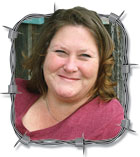
For several years, I’ve said the general population is three, if not more, generations removed from the farm. That scenario has become more apparent in the last month. A lack of what many of us see as common sense, apparently, is associated with the separation from the farm.
I saw a post on a social media page recently from a “new farmer” asking questions about raising chickens. She had gone to the local feed store for chick day and bought 20 or 30 chicks, and asked when they would start laying eggs. Folks said it could take six to eight months, depending on the breed. She assumed the chickens would be in full production in just a couple of weeks. The poster wasn’t sure of the breed or the sexes of her chicks. Someone suggested she find them a new home.
Another post was from a lady who was thinking about buying a cow to milk. She posted the photo of the possible purchase. Let’s just say it wasn’t a dairy breed and it maybe even had a little Watusi blood. The would-be dairy farmer said the person selling the cow had never milked her, so she was looking for tips on how to “train it to milk.” She was excited to make cheese and butter. My advice to her was to simply go to the store, open the dairy cooler and pick up a gallon or two of milk, along with butter and cheese. Factoring in the cost of the cow, feed and her medical bills after her attempts to milk the cow, it would be much cheaper in the long run. If there was a lesson to be learned, I hope it was that not every cow is cut out to be a family milk cow, nor is everyone suited to own or milk a cow.
There was recently a report stating ivermectin may be viable against the COVID-19 virus. The news sent some racing to their nearest farm-supply retailer. In some areas, consequently, it’s been pulled off shelves to keep people from buying it and dosing themselves and their children. When we work cattle, pouring everything through the chute is one of my main jobs, so I tend to get a little (sometimes a lot) of it on my skin and clothes. Maybe, just maybe, I already have what it takes to fight the virus in my system. I don’t worry about too many ticks for a couple of months after we work cattle, so that’s a win, however, I am not going to intentionally dose myself. I also have injectable penicillin in the refrigerator, but I don’t plan on giving it to myself. The barn cat turned house cat, however, knows I’m not afraid to use it and runs when I open the fridge.
Another area people seem to be delving into for the first time is cooking. I’ve had more than my fair share of fast-food joint trips, but I can cook. My meals may not be the gourmet cuisine offered by some of our fine establishments in the Ozarks, but I can pull a meal together.
A younger lady in a grocery store recently asked my friend if the item she had in her hand was hard to cook. My friend said she turned the bag of rice over to show the lady the directions and explained how to cook it. Knowing Tina, who is a good, down-home kind of cook, I’m sure she sweetly gave a clear and concise explanation of the process to the lost lady.
A former political candidate said he “could teach anybody to be a farmer.” Since his bid for office was cut short, maybe he needs to spend some of his free time showing people how to be farmers, and while he’s at it he might give a few cooking classes.
Stay strong farmers and ranchers in the Ozarks. It looks like we have a little more job security these days than most.
Julie Turner-Crawford is a native of Dallas County, Mo., where she grew up on her family’s farm. She is a graduate of Missouri State University. To contact Julie, call 1-866-532-1960 or by email at [email protected].






